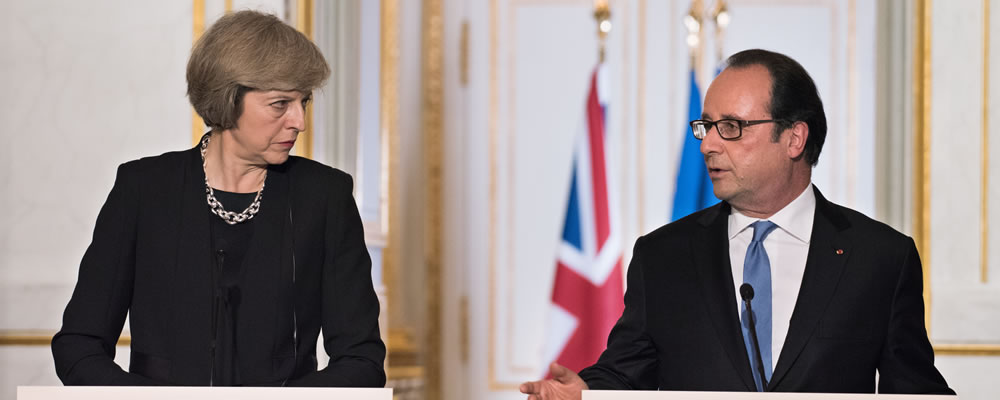The Euro Pound exchange rate was highly volatile on Wednesday as the UK government signed off on Article 50 and began the formal Brexit process.
As the Brexit began before the end of March just as UK Prime Minister Theresa May said it would, uncertainty lightened slightly as investors have faith May will keep her word on other parts of the Brexit process too.
The first big Brexit developments are unlikely to happen until May or June, when negotiations between UK and EU negotiators will begin in full.
The short-term Euro Pound exchange rate could settle down until this time, but in the long-term the earliest days of Brexit negotiations will set the tone for the whole process.
[Published 11:05 BST 28/03/2017]
The Euro to Pound exchange rate has slipped this week despite the UK government’s intention to finally begin the formal Brexit process on Wednesday the 29th of March. EUR GBP continues trending in the region of 0.86.
Investors have become increasingly focused on the Pound as the start of the Brexit process approaches. On Tuesday morning, Sterling was bolstered by news that the UK government appeared to be backing away from its threat that it would rather leave the EU with no deal than a bad deal.
A lack of strong Eurozone data so far this week has made it easier for Sterling to push EUR GBP down from the week’s opening levels.
However, despite GBP optimism so soon before the Brexit process begins, the long-term Euro Pound outlook isn’t necessarily on the downside.
Analysts are torn on whether or not Brexit is priced into the Pound, or even if UK uncertainty will worsen or ease during the process.
Some have argued that if the Brexit process has formally begun, markets will increasingly operate around the assumption that the UK-EU divorce is a certainty rather than questioning the possibility of the process being stopped.
Brexit negotiations may not begin for some time, though the earliest negotiations may dramatically alter the long-term outlook of Pound exchange rates depending on how optimistic they make investors.
Currently, both UK and EU diplomats are confident that the nations will eventually reach a beneficial deal, but Sterling could plunge again if early negotiations are bumpy as uncertainty rises once again.
The Euro’s mid to long-term outlook, on the other hand, will also highly rely on political news in the coming months.
With April just around the corner, the 2017 French election’s first round is nearly a month away.
If pro-EU candidate Emmanuel Macron wins the first round then the Euro could see one of its best gains all year as investors cool on concerns that a Eurozone nation could withdraw from the bloc.
However, if anti-EU candidate Marine Le Pen wins the first round, concerns of her winning the second round too will also worsen.
A Le Pen win in the second round (which takes place in May) would significantly lower the long-term EUR GBP outlook – though analysts still argue a second-round Le Pen win is unlikely.
As a result, long-term Eurozone uncertainty is currently actually much higher than UK uncertainty. This year’s general elections in the Eurozone are pivotal, but analysts and traders are increasingly accepting the reality of Brexit and this is unlikely to change unless early negotiations take a bad turn.
At the time of writing this article, the Euro to Pound exchange rate trended in the region of 0.86. The Pound to Euro exchange rate traded at around 1.15.


Comments are closed.